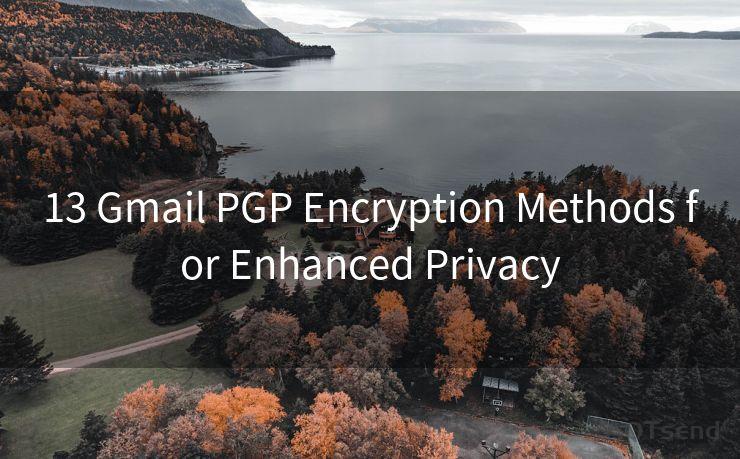13 Gmail PGP Encryption Methods for Enhanced Privacy




In the digital age, privacy has become a paramount concern for individuals and businesses alike. Gmail, as one of the most popular email services, is often a target for privacy invaders. To combat this, many users are turning to PGP (Pretty Good Privacy) encryption methods to enhance their data security. In this article, we explore 13 ways to utilize PGP encryption with Gmail for improved privacy.
1. Understanding PGP Encryption
PGP, or Pretty Good Privacy, is a data encryption and decryption computer program that provides cryptographic privacy and authentication for data communication. It allows users to securely encrypt their emails and attachments, ensuring that only the intended recipient can read the content.
2. Getting Started with PGP
To start using PGP with Gmail, you'll need a PGP key pair. This consists of a public key, which you share with others, and a private key, which you keep secret.
3. Installing a PGP Tool
There are various PGP tools available, such as GPG (GNU Privacy Guard). Install one that suits your operating system and integrate it with your Gmail account.
4. Importing and Exporting Keys
Learn how to import and export your PGP keys. This is crucial for sharing your public key with others and keeping your private key secure.
5. Encrypting Emails with PGP
When composing an email in Gmail, use your PGP tool to encrypt the message content and/or attachments using the recipient's public key.
6. Decrypting PGP Encrypted Emails
Recipients of PGP-encrypted emails will need to use their private key and a PGP tool to decrypt the message.
7. Verifying Email Integrity with PGP Signatures
PGP not only encrypts but also allows you to digitally sign your emails. This helps recipients verify the email's integrity and authenticity.
8. Using Plugins for Gmail
There are plugins available that integrate PGP functionality into Gmail, making the encryption and decryption process more seamless.
9. Managing Your PGP Keys
Proper key management is essential. Learn how to store, backup, and revoke your keys as needed.
10. Ensuring Compatibility
Not everyone uses PGP. Ensure your encrypted emails are compatible with your recipients' systems by providing instructions or alternative methods of communication.
11. Staying Updated on PGP Best Practices
The world of encryption is constantly evolving. Stay updated on the latest PGP best practices and security vulnerabilities.
12. Balancing Security and Convenience
While PGP enhances privacy, it can add complexity to email communication. Find a balance between security and user-friendliness.
13. Educating Yourself and Others
Take the time to educate yourself on PGP encryption and spread awareness among your contacts. Privacy is a shared responsibility.
In conclusion, PGP encryption is a powerful tool for enhancing privacy in Gmail communication. By following these 13 methods, you can significantly improve the security of your email exchanges and protect sensitive information from prying eyes. Remember, privacy is a fundamental right, and with tools like PGP, we can all take steps to safeguard our digital communications.

🔔🔔🔔
【AOTsend Email API】:AOTsend is a Managed Email Service for sending transactional emails. Support Email Types: reminders, authentication, confirmations, notifications, verification codes, invoices, password resets, account activations, billing statements, two-factor authentication (2FA), and one-time passwords (OTP) emails, etc. $0.28 per 1000 Emails. 99% Delivery, 98% Inbox Rate.
You might be interested in:
Why did we start the AOTsend project, Brand Story?
What is a Managed Email API, How it Works?
Best 25+ Email Marketing Platforms (Authority,Keywords&Traffic Comparison)
Best 24+ Email Marketing Service (Price, Pros&Cons Comparison)
Email APIs vs SMTP: How they Works, Any Difference?




Scan the QR code to access on your mobile device.
Copyright notice: This article is published by AotSend. Reproduction requires attribution.
Article Link:https://www.mailwot.com/p694.html



